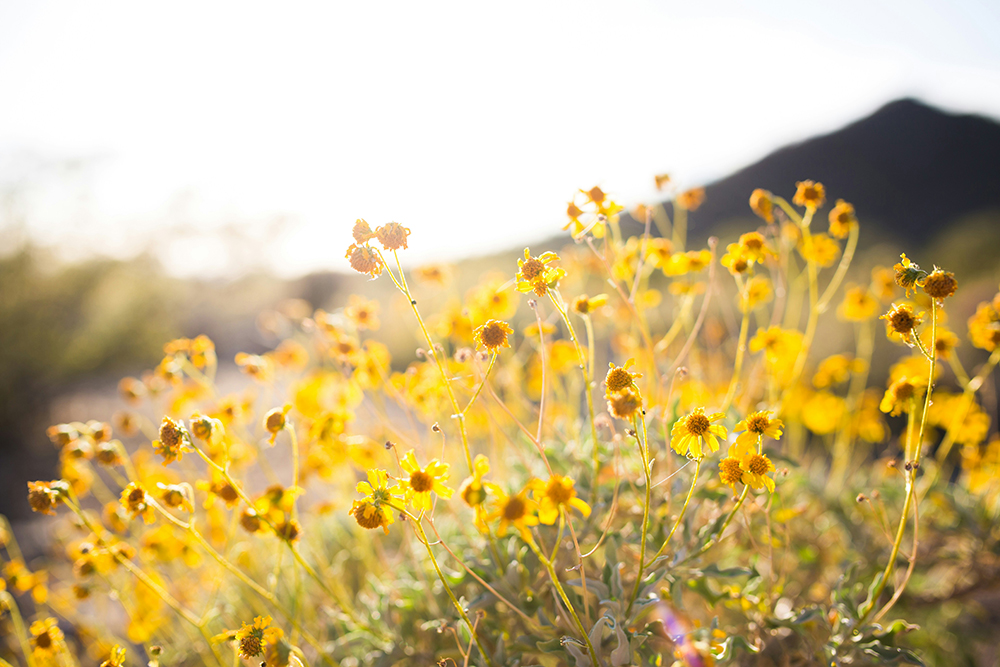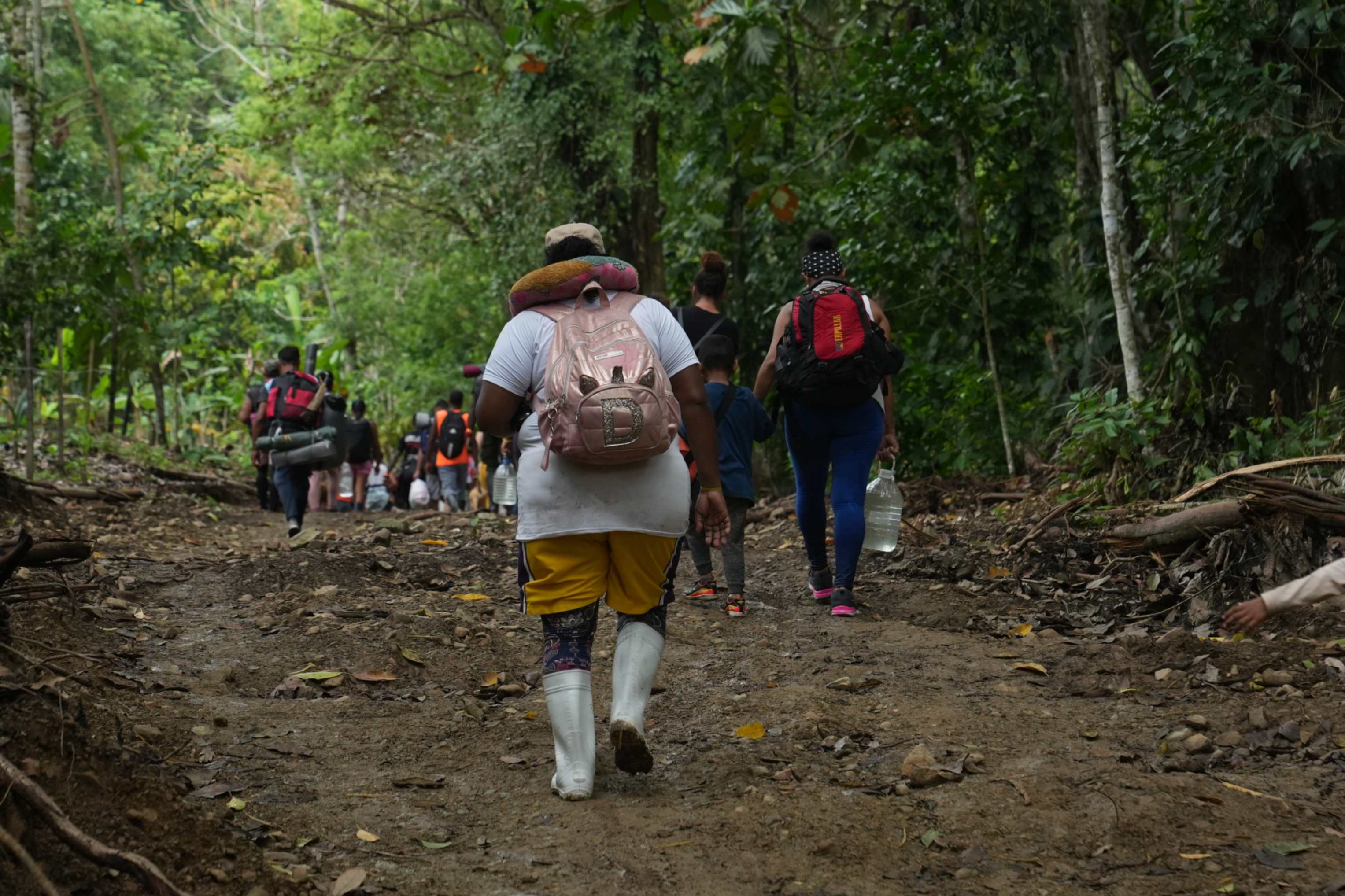
(Unsplash/Alysa Bajenaru)
What I want to say is the kind of thing I would make into a poem, if I were a poet. Poets have a way of bull's-eyeing the truth with few words. But since I am an essayist on good days, let me try this way.
A friend recently wrote to me that gratitude is the doorway to joy. So true. But I further submit that something else is necessary on the path through that threshold: seeing and naming.
Wintercress. Black Haw. Spring Beauty. Oakleaf Hydrangea. If I were writing a poem, I might start with these names. Can you picture them? Maybe some of you can. But if you cannot, it's just that you haven't been identifying flowers with a plant app all over the mid-Atlantic for the past four years, like me.
Once I knew the names of these plants, I started seeing them everywhere. It was like walking into an alternate reality of the same neighborhood I've lived in for 25 years. A reality in which these flowers started shouting at me from people's yards or the patches of forest that bejewel our city, patches I now walk through often, just for the joy of seeing more flowers. I had never seen all these flowers before. Naming them made me see them, made me enjoy them.
See what I mean?
Advertisement
Naming and seeing. Seeing and naming. It's hard to say which comes first, but once you get the hang of it, you walk through that doorway of gratitude straight into joy enough times that it becomes the home you live in. It's a self-reinforcing practice of noticing and paying attention. Purposely noting almost anything brings the world into your own tiny orbit so you can love the whole world, one tiny bit at a time. It doesn't have to be flowers; birds, tides, rocks, butterflies and sometimes the prettiest little ladybugs who end up in your kitchen. People too, of course.
People, most of all.
Maybe I could start that poem with the words, siempre adelante. That's Spanish for "always forward." I would describe a man named Manuel whom I met at a church luncheon for people experiencing homelessness (and for us, the bumbling helpers). I'd tell you about his face when he described walking from Venezuela to Texas. Yes, you read that correctly.
Manuel said that siempre adelante is what he whispered to himself with every step through the Darien Gap, the world's densest and scariest jungle that sees thousands of migrants risking their lives to pass through each day. He told himself this despite the criminals indiscriminately killing people, the snakes, the panthers, the hunger and the thirst.
We ate soggy mozzarella sandwiches in the church basement and suddenly by knowing his name and listening to his story, the phrase "migration crisis" went from an intractable problem to a single indefatigable and courageous person I could befriend. I realized this later, of course. In the moment I could only feel my heart being drawn toward him. To his face and his name, wondering about his story and asking questions in my ridiculously infantile Spanish. Someone, many actually, might say there are millions of "Manuels" and that we should fear them. But I only know one. Because there is only one, and I don't fear him, and that's my entire point.
When was the last time you looked a person in the eyes and asked, "What's your name?"
Listen, this is not about making yourself feel better for the sake of it (although nothing wrong with that in my book), or eschewing the need for an overhaul of the wasteful and vapid culture that threatens to destroy our holy essences and the earth along with it. What I am saying is that seeing and naming, and the consequent gratitude that leads to joy, also leads to hope. And hope is the antidote to despair. I am stretching the syllogism here, but I promise you it's true.
When was the last time you saw a tree and wondered whether it was a birch or an elm or a beech or an elderberry? When was the last time you looked a person in the eyes and asked, "What's your name?"
These are choices you can make every day.
Yes, I know the world is burning. We're literally the ones burning it, and even a tiny virus killing seven million people wasn't enough to teach us that we are all in the same boat, like Pope Francis keeps reminding us. It wasn't enough for us to learn that time is short and that it's better to say "I love you" when you have the chance and that we should definitely not lead people into senseless egomaniacal wars.
People, including myself, are upset about so much. People, including myself, experience pain and loss within the orbit of their own small life — and it never feels small. But the way through is to keep paying attention. To pay attention as if your life depended on it, to keep seeing and naming and loving and acting within the measure of your own eyes, your own outstretched hands, your own small life. The hurt and loss will always be a part of life, but the beauty, joy and love are waiting for you too, when you are ready. I remind myself of this every day. Especially when I come across a flower I've never seen.

Migrants form small groups to protect themselves as they journey through the wild roads of the Darién Gap, with some acting as lookouts while others protect the most vulnerable people. (GSR photo/Manuel Rueda)
Here's some Gospel truth: Jesus very often went one by one. Zaccheus, Nicodemus, Jairus, Peter, John, Andrew, Lazarus, Mary and let's not forget Martha, my sister from another mother.
"Martha, Martha," he said, and I always imagined him looking at me with the same tenderness.
You know, I'd bet everything that Jesus loved wildflowers. In some ways, he was just like me. He even said we should learn from the way they grow, "swaying in the wind of their God, accepting whatever comes their way."
I picture him on the lakeshore watching red poppies sway. The moon is rising and Jesus is alone. His feet are tired and maybe he's hungry, but a familiar gratitude for his Father floats gently into his heart. Somehow those poppies remind him of it. It's a poem in a picture in a happiness that is mine too — well, when I remember to say thank you.
Thank you, Jesus.




